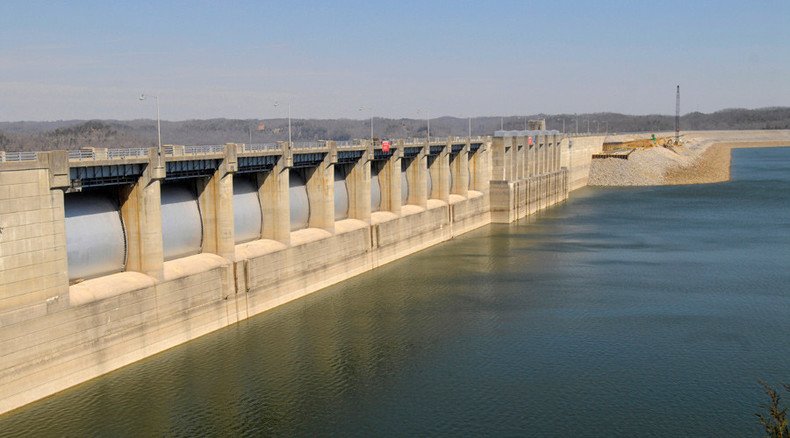Kentucky, oil company colluded to keep spill settlement secret

The Kentucky Energy and Environment Cabinet and an Eastern Kentucky oil company agreed this month to keep secret a settlement related to a lawsuit over the company's repeated contamination of the Kentucky River.
The settlement proposal included a confidentiality clause that would have required cabinet officials and Childers Oil Co. to “forever remain silent at all times and places and under all circumstances” over the terms and even the existence of the settlement, according to The Courier-Journal.
The settlement proposal would have required Childers Oil to pay the state $48,057 for the company's diesel fuel spill on its property in Whitesburg in February 2011 that made its way into the North Fork of the Kentucky River. The leak caused a water advisory in the town that lasted three days.
Oil company poisons the KY River and attempts to keep details of their puny 45k settlement with state a secret http://t.co/NeLHsM2pKe
— DrewFrog (@DrewFrogger) September 29, 2015The settlement amount represented $23,057 in costs the state incurred to react to the spill, as well as a $25,000 penalty.
The proposal was rejected on Sept. 18 by Franklin Circuit Judge Thomas Wingate, largely thanks to an oversight by the cabinet. The agreement was signed by a cabinet official, but not by an attorney representing the cabinet. Wingate also refused the confidentiality request in the proposal.
READ MORE: Shell halts Alaska offshore drilling project
Wingate ordered the state and Childers Oil to appear in court at a date yet to be determined to address the settlement.
The strict confidentiality agreement is a violation of the Kentucky Open Records Act, according to Jon Fleischaker, an attorney for The Courier-Journal.
“I think Judge Wingate did exactly the right thing," Fleischaker said. "Such an agreement with a confidentiality clause is unenforceable because under the Open Records Law, a contract — which is what a settlement agreement is — is a public document and they cannot mutually agree to make it a non-public document."
READ MORE: BP to pay record $18.7bn over 2010 Deepwater Horizon oil spill
While maintaining that the cabinet has the right to enter into such sweeping confidentiality agreements, Mike Haines, general counsel for the cabinet, conceded that it was a "rare" move.
Haines added that the settlement proposal was approved by the cabinet because those were the demands Childers Oil had in order to agree to pay the state's response costs.
“We did it to resolve the case,” he said.
Wonder if state attys did not sign because they knew it was illegal? http://t.co/EUXS55Aiy2
— James Bruggers (@jbruggers) September 29, 2015Haines admitted that the cabinet blundered in not having an attorney sign the deal. Settlement documents were drafted for Jeffrey Cummins, director of enforcement in the Department of Natural Resources. Cummins signed, but the documents were filed without an attorney's approval.
“We just didn’t catch it,” Haines said. “And I agree that it was totally appropriate for Judge Wingate to reject it since it wasn’t signed by an attorney.”
An attorney for Childers Oil did not respond to requests for comment.
Kinda makes you wonder how many extractive industry spills we aren't informed of? http://t.co/pRdLU8CLRh
— Ky Environmental Fou (@KyEnvFnd) September 28, 2015Evan Smith, president of Headwaters Inc., a water-quality advocacy group in Whitesburg, denounced the proposed agreement.
“The most important danger that comes from this is not what’s actually in the water, it’s the public perception that you can’t trust what comes out of your pipe and what the government is doing to protect the water,” Smith said. “And when you’ve got confidential settlements that look like sweetheart deals, it further erodes the public’s trust in our government’s process and ability for protecting our drinking water.”
READ MORE: Texas fracking site that spilled 42,000 gallons of fluid into residential area hopes to reopen
The February 2011 diesel spill came from an underground pipe connected to an above-ground storage tank that had not functioned for three months, The Courier-Journal reported. It was the third diesel spill in three years that the state pinned on Childers Oil.
In 2010, Childers Oil paid $500,000 to settle a state lawsuit following a spill of diesel fuel waste into the North Fork of the Kentucky River.














